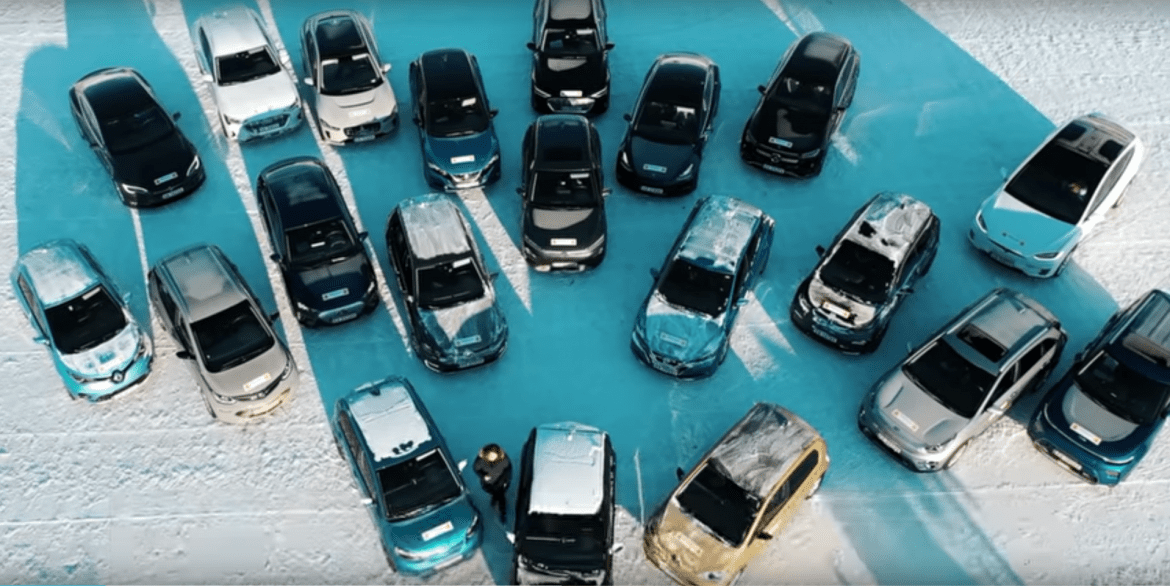Aside from general range anxiety, a big worry for many consumers with regards to electric cars is their cold-weather ranges. While there is no denying that electric car ranges suffer during cold temperatures (not even gasoline cars are safe from the drop in efficiency). But exactly by how much does the range drop during cold temperatures?
The Norwegian Automobile Federation (NAF) has decided to conduct a test of their own with 20 of the best selling electric cars in Norway. At the conclusion of the test the NAF was able to come to three conclusions:
- EVs don’t suddenly shut down when they run out of power. Drivers are given several warnings and can maintain regular speed until the very last miles.
- EVs on average lose 20 percent of their range in colder climate.
- EVs charge more slowly in cold temperatures.
The testing procedure was rather simple, all 20 cars would follow the same route at the same time of day which consisted of city driving, highways, and country roads. The speeds ranged from 37 mph to 68 mph and included one climb through a mountain pass (with higher ranged cars making two passes). The goal was to use up the entire battery and compare the range with the stated WLTP range and determine how much range loss there was.
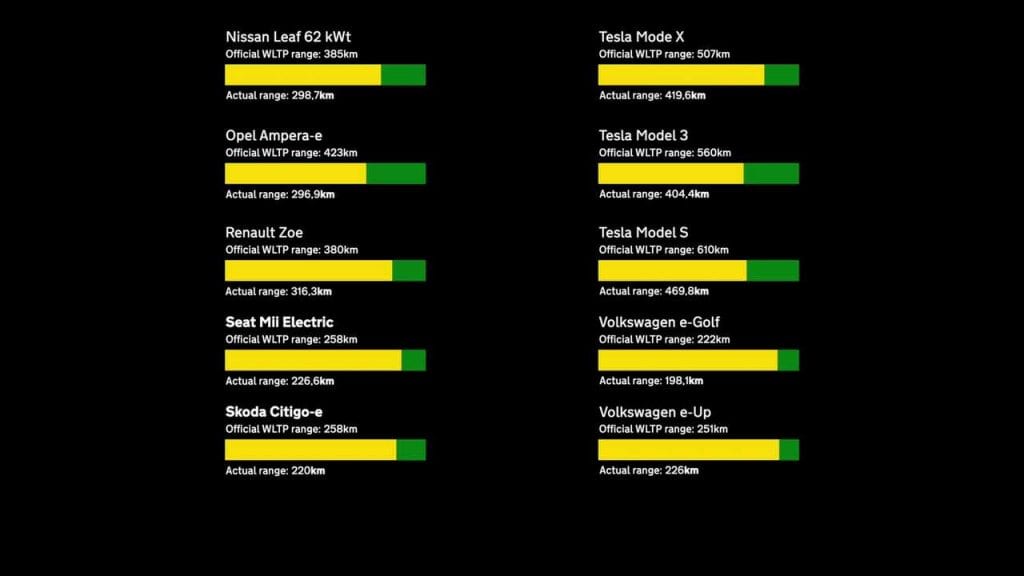
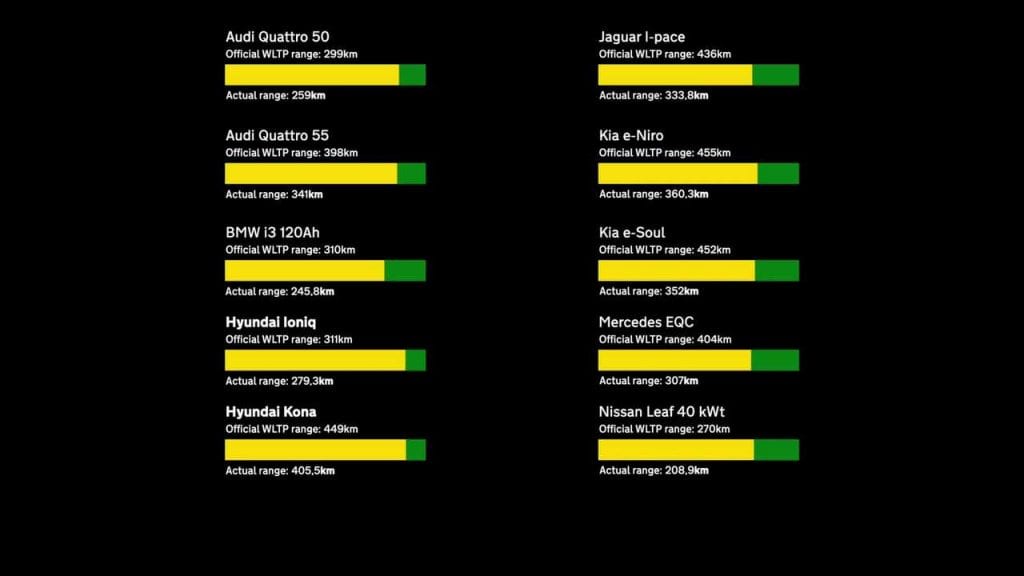
Unsurprisingly none of the electric cars were able to make it up to their WLTP stated range with the average range loss being about 18.5%. The Hyundai Kona Electric was the closest to its stated range with only a loss of about 9%.
The worst was the Opel Ampera-e (which is a rebadged Chevy Bolt) which only managed 70% of its stated range, but even then it was able to squeeze out 183 miles, more than enough for most people’s daily commute. Additionally, while the Model S still had the longest range in the cold weather, it only delivered 74% of its stated range, making it second worst. However, NAF does state that the Model S drove in slightly worse conditions at the end of test as it had to trudge through fresh and deep snow that the other cars did not.
The NAF also made sure to explain that an EV does not simply shut down all of a sudden when it runs out of battery and does give you plenty of warnings prior to running out. But even after “running out” of power, you might still be able to drive a few miles.
A fun fact worth knowing is that if you run completely out of power you can still drive a few more kilometers. Just shut the car down and leave it for a short while, maybe half an hour to an hour, and you’ll have power enough to drive even a few more kilometers. This is extremely practical if you happen to stop just a few hundred meters short of a charging station or your home.
Aside from the range, the NAF also tested the charging times as cold weather will also impact how long it will take for a battery to charge up. Every car was charged from less than 10% to 80% and timed to see how long it would take, the charging took place after driving for two hours on the highway to make sure that the batteries were warm and the cars did not wait in any sort of line.
The two fastest to fill up was the Audi e-tron doing it in about 27 minutes and the Tesla Model 3 with its 200 kW charging allowing it to charge to 80% in about 35 minutes.
While most of the other electric cars were able to charge to 80% within the hour, there were a few that took much longer, namely the Jaguar I-Pace, Opel Ampera-e, and Nissan LEAF 62 kWh.
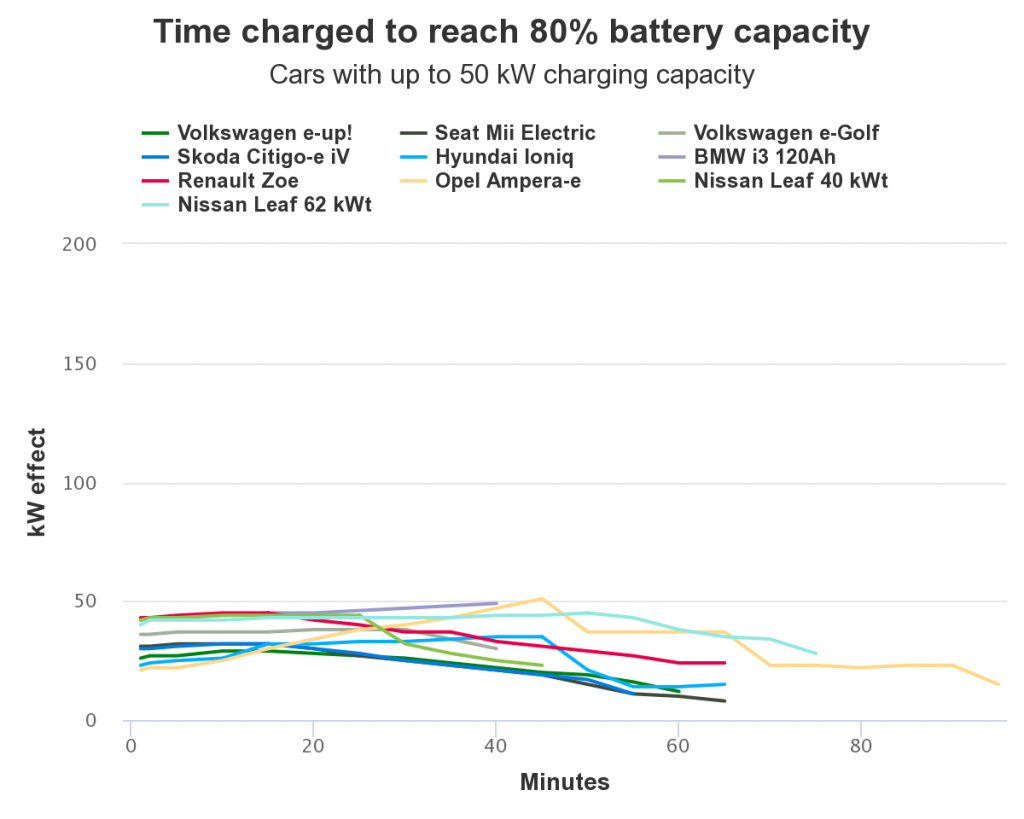
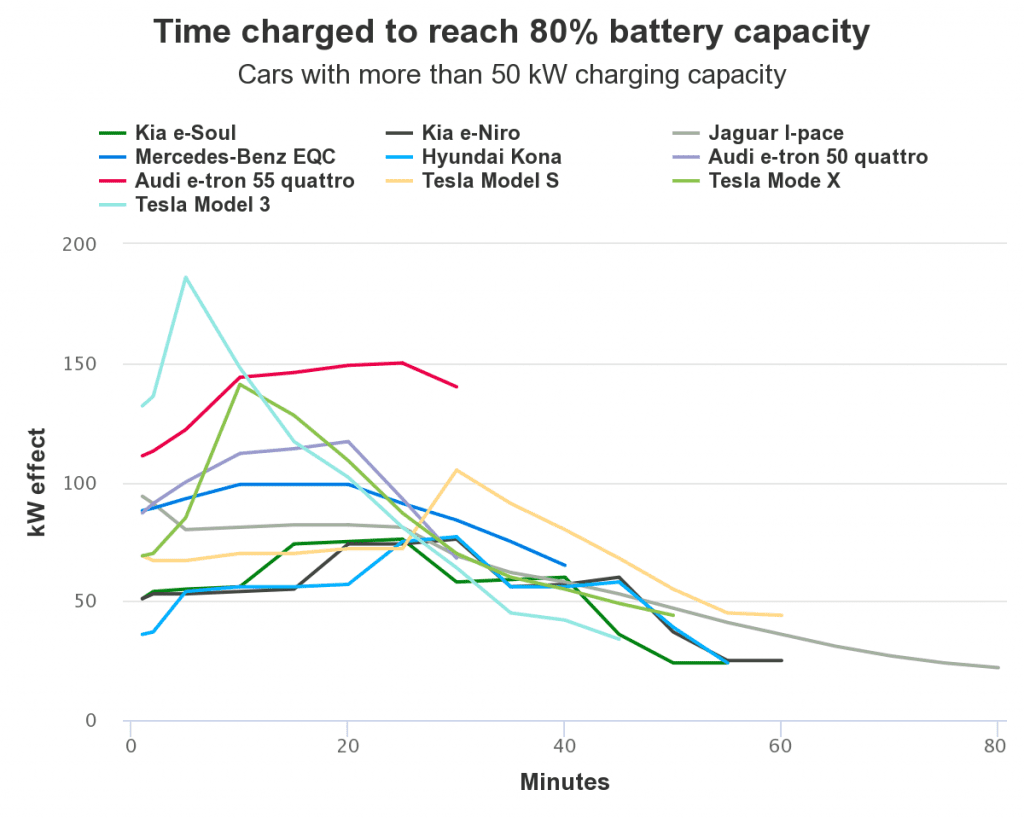
While it is not as significant of a drop as AAA found last year, an average drop of 18.5% in range might be hard to stomach for some new owners who were unaware of the effects of cold weather. However gasoline cars do not publish updated MPG figures for cold weather when you buy them, so I do not know if it is appropriate to ask for new WLTP and EPA numbers to post range figures of electric cars in cold weather.
What do you guys think of the results? Should cold weather ranges be tested and published for new electric cars? Let me know what you think in the comments below.
Source: NAF
